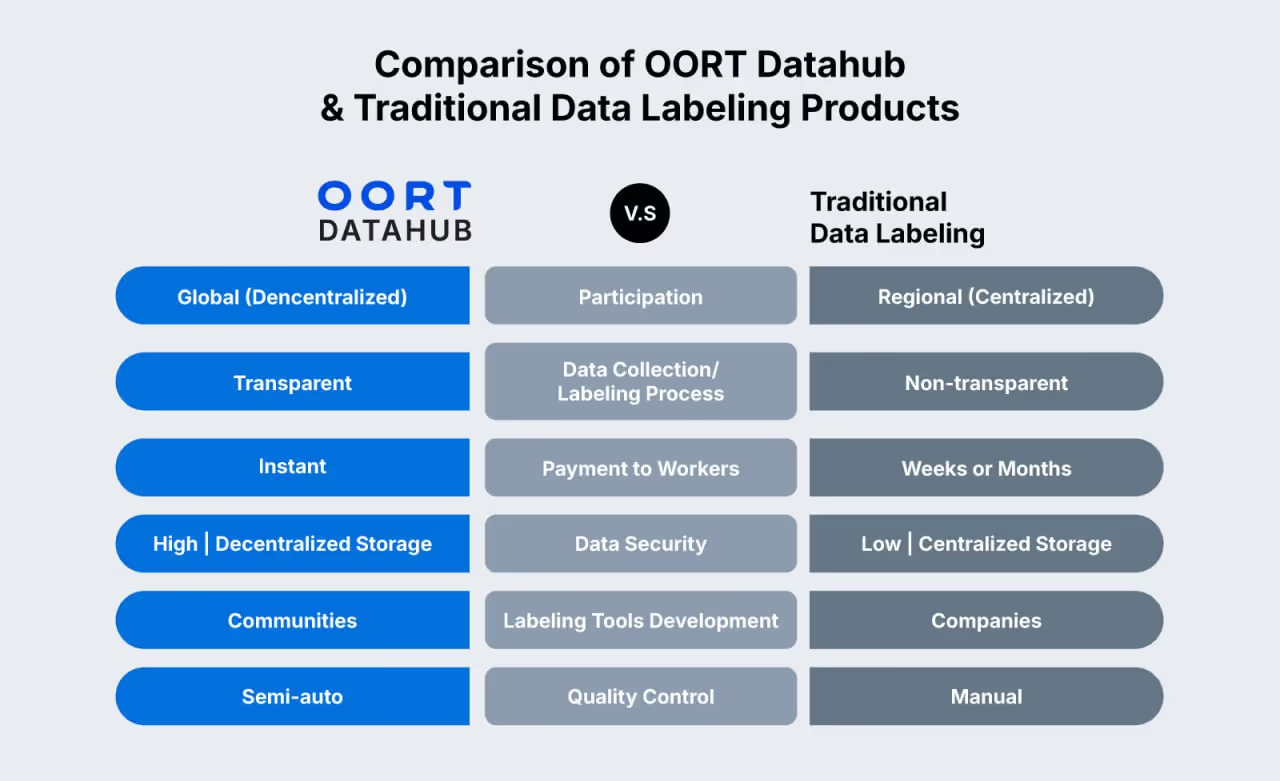.avif)
The world is witnessing the transformative power of artificial intelligence (AI) across industries, from healthcare to finance, manufacturing to retail. AI’s capacity to enhance human life seems boundless—autonomous vehicles are reducing road accidents, predictive healthcare models are diagnosing diseases earlier, and personalized recommendations are improving customer experiences in everyday shopping.
Yet, the game-changing potential of AI comes down to one critical factor: the quality of the AI models powering these innovations. And the foundation of any AI model? Data.
Behind every AI-powered product or service is a sophisticated model trained on vast amounts of data. These models require not only the collection of huge datasets but also the careful annotation, or labeling, of that data. A self-driving car’s AI, for example, doesn’t just need images of roads—it needs labeled images that identify pedestrians, stop signs, other vehicles, and countless other objects. In healthcare, AI models trained to detect tumors need labeled medical images distinguishing healthy tissues from malignant growths.
In the finance sector, AI models have also become invaluable in areas like fraud detection, risk assessment, algorithmic trading, and customer service automation. Taking fraud detection as an example, in 2019, JPMorgan Chase implemented a machine learning fraud detection system that significantly reduced false positives by focusing on high-quality, labeled data, ensuring that transactions were properly categorized to teach the model the difference between legitimate and suspicious activities.
It’s not enough to simply have data. For AI to work effectively and safely, that data must be accurately labeled, ensuring the models can “learn” and make decisions as close to human reasoning as possible.
Data collection and labeling are fraught with hurdles, many of which slow down AI development and drive up costs. First, the sheer volume of data required to train effective AI models is staggering. Manually labeling this data is time-consuming, labor-intensive, and expensive. In some cases, it requires experts—think of annotating medical images, which may need the input of trained radiologists, or legal documents requiring legal experts.
On top of that, ensuring consistent, high-quality annotations across millions of data points is a constant battle. Variations in human interpretation can lead to inconsistent labels, skewing the training process and reducing the AI model’s reliability. Moreover, privacy concerns around sensitive data, such as personal health records, add another layer of complexity to the process, often stalling or limiting data availability.
These challenges collectively act as bottlenecks, slowing down the deployment of high-quality AI applications, especially for enterprises that may not have the resources to scale data labeling efficiently.
With the launch of OORT DataHub, it addresses the above issues by leveraging the blockchain technology, making data labeling for AI more accessible and safer globally. Pioneering this approach, OORT coined the term “decentralized data labeling”.
Key advantages and benefits brought by the OORT DataHub are mapped out below:

Decentralized data labeling opens up a world of opportunities by enabling global participation, where individuals from diverse backgrounds and regions can contribute their skills regardless of geographic location. This approach not only democratizes access to work but also incentivizes contributors by leveraging the blockchain technology, making the process faster, more inclusive and accessible. This model empowers individuals while contributing to the growth of AI and machine learning systems, ultimately fostering innovation in a fairer, more transparent environment.
Blockchain enhances transparency in data labeling. Every step, from task completion to payment, is recorded and verified on the blockchain. This transparency prevents mistakes or disputes and increases trust between AI projects and their workforce. In Datahub, OORT uses its own high-performance layer-1 blockchain - Olympus Protocol- to achieve transparency.
All data on DataHub will be stored on OORT Storage, our enterprise-grade decentralized storage solution. Both raw and annotated data are encrypted and split into multiple pieces, stored across different locations, ensuring they cannot be tampered with or accessed without authorization. In contrast, data managed by centralized cloud platforms is more vulnerable to breaches and hacking.
Smart contracts ensure tasks are easily assigned and payments are made within minutes. In contrast, traditional methods are slow and complicated, often taking weeks or months. More importantly, OORT DataHub introduces a novel reward mechanism where contributors receive NFTs (non-fungible tokens) to recognize their efforts.
OORT DataHub connects community members to collaborate on creating data collection and labeling tools. These tools become more efficient and effective with input from programmers, data experts, and AI projects. The teamwork steadily improves the speed and accuracy of data labeling tools.
What sets OORT DataHub apart is its unique Proof of Honesty (PoH) system, a human-in-the-loop auto-quality control mechanism. This system ensures immediate verification of the accuracy of submitted data labels, unlike traditional companies that take time to manually verify results, often missing errors.
OORT recently entered into partnerships with industry leaders, including eCAT Center (under the National Science Foundation), and the Shenzhen Data Exchange, setting new milestones and standards in pushing the boundaries of AI ecosystem and data utilization. For more information on these partnerships, check out our previous blog articles:
OORT DataHub is currently in beta testing. The commercial release will go live in one month. Stay tuned for more information!